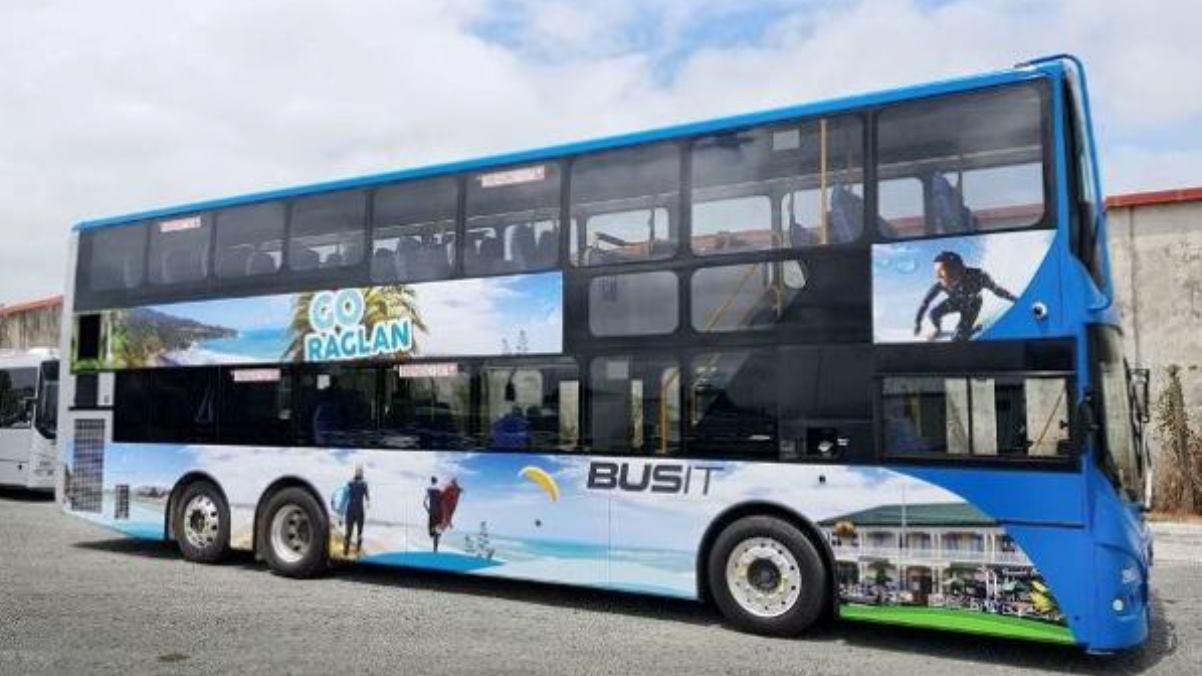WRC news
Waikato Regional Council is proposing bold changes to public transport, with a plan to connect Raglan and all other urban areas to its nearest regional centre with daily bus services.
The draft plan also proposes reducing emissions from public transport services, with a target to be net negative by offsetting more carbon emissions than it produces for the period 2027 to 2050.
For Hamilton and its surrounding areas, the plan sets out a future network that would enable growth to increasingly concentrate around frequent public transport corridors. These corrdors would enbale fast and convenient car free access throughout the city and wider metropolitan area.
The draft plan signals continuous improvement for Te Huia, as well as plans to investigate the viability and benefit of rail stations in Pōkeno and Te Kauwhata, in the north Waikato.
These goals and more are set out in a draft regional policy for public transport, which Waikato regional councillors voted 8-3 to adopt for consultation with the public.
Central to the plan is a goal to maximise access to opportunities such as education, jobs, housing, healthcare, commerce, recreation and social connections, said Regional Connections Committee Chair Angela Strange.
“That means designing our public transport network in a way that meets people’s needs, and in doing that we can reduce dependency on private motor vehicles and harmful impacts on the environment from transport,” Cr Strange said.
To achieve the aspirational aims of the plan, however, would require the higher levels of public transport expenditure over time, councillors heard.
“Affordability is important, something that was a matter of debate around the table,” said Waikato Regional Council Chair, Barry Quayle. “I want to reassure people that even if we get public support for these aims, any changes to investment will need to go through a long term plan process. Through this process, we’ll test any changes in levels of service with our communities first.
“It’s also important to keep in mind that the cost of public transport is only partly borne by the ratepayer. Fare revenue and central government investment makes up the majority of the funding for public transport in Aotearoa New Zealand,” Cr Quayle said.
Councillors agreed that feedback from the public was critical to ensuring the plan is right for communities.
“This is a truly regionally focused plan. Even if you’re not a regular passenger on board one of our bus or train services, we encourage you to take the time to see what we’re planning and share your thoughts, because they will help to shape the actions we take in ways that work,” Cr Strange said.
The draft plan and online submission form will be available at waikatoregion.govt.nz/rptp from next Monday, 4 July, when consultation opens. The consultation period will close at 5pm on Friday, 29 July. Hearings and deliberations will be in August, with the final plan to be adopted at the last meeting of this triennium on Thursday, 22 September.
This council meeting was livestreamed. To watch it, go to https://youtu.be/ep4_YGPPqhQ.
